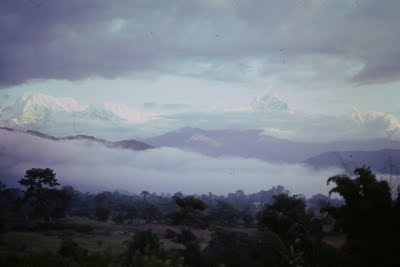Lately, on watching financial and news programs, I've heard some splendidly creative language. "Vanilla option" for a normal option with no special features. (Unlike a "rocky road option," I imagine.) "Kicking the can down the road" for dealing with the debt ceiling later. "The President needs to go long; he can't small ball" for kicking butt. Then militaristic language is in vogue. "The Fed is moving to smaller bullets." "There's not going to be a nuclear monetary stimulus attack." "He only has one more bullet in his gun." And then lots of things are being "deployed" these days. Other current phrases include "they don't want to open the kimono." "Elevator pitch" or pitching something in the amount of time it takes to ride an elevator. And though I don't know what it means, what about "a dead cat bounce in the market"?
As these terms seep in, others seep out. Does anyone use "counterpane," "davenport," or "folderol" anymore? Or "woppy jawed" if something's off kilter?
There are definitely words that define their times. I saw a movie not that long ago set in the 1920's in which the heroine said, "Whatever," like in, you know, "What-evah." Not. Or these: Bikini, luncheon meat (the '40s). Credit card, Freudian slip (the '50s). Black hole, flower children (the '60s). Floppy disk, leg warmer ('the '70s). Walkman, voice mail (the '80s). DVD, FAQ (the '90s). ( From Twentieth Century Words, Oxford University Press, 1999.)
And today? How about "Hey!" instead of "Hi." "No problem" instead of "You're welcome." "The tweetisphere." "Couch surfer." "Webinar" (an internet seminar).
Then "folks" seems to have taken over that good word, "people." (I muse that Lincoln might have said, "...and that government of the folks, by the folks, and for the folks shall not perish from the earth." And except for Mother's Day and Mother Nature, "mom" seems to have replaced "mother." (As "dad" has "father.") And the pronunciation of that valuable French word, "voilà," has turned into "wallah."
Then, too, meanings get skewed. "Decimate" for "annihilate" when it really means "to destroy by one-tenth". (That's the "deci" part.) "Dastardly" for "terribly" when it more precisely means "cowardly." "Disinterested" for "uninterested" when it means "to be free of bias or self-interest." "Fulsome" for "full" when it means "excessive, offensive."
Of course, there are some splendid words that only someone like Simon Winchester OBE comes out with. "Chamfered" as in "chamfered rectangles." ("A beveled edge connecting two surfaces.") "Majuscule" (the opposite of "miniscule").
And my copy of Lawrence Durrell's Justine has words I underlined because I didn't know what they meant. "Antinomian." Even as I write that, my spell-check underlines it as if to say, "huh??" (It means that "faith and grace relieve one from having to adhere to moral law.") "Ratiocinative" ("reasoning, exact thinking"). "Phthisic" ("wasting away").
I used to have a little blue notebook in which I wrote words I didn't know. My hope was that on looking them up and writing down the meaning, I might be able to actually incorporate them into my speech. Or at least recognize them the next time I saw them. Alas, neither occurred. Many didn't really fit into everyday language. Some I totally forgot I'd ever seen before. One day the little notebook got tossed.
I did keep a listing of collective nouns which originally came from The Book of St. Albans, 1486. To wit:
a rascal of boys
a goring of butchers
a blast of hunters
a foresight of housekeepers
a diligence of messengers
a converting of preachers
a blackening of shoemakers
a proud showing of tailors
a worship of writers
 |
| This is from the Waikiki Zoo. I discovered the collective noun for flamingos is "stand." |
Okay, let's be a little imaginative here.
 |
| What about a sunburn of vacationers? |
 |
| What do you think? An apertif or a café-crème of café-goers? |
 |
| This seems obvious: a weaving of baskets. (I took this photo in Sommieres, France, the last town where Lawrence Durrell lived.) |
Et, voilà.


































